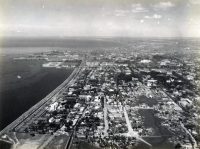I got up very early this morning after several sorties during the night to see what was doing. We all had a little sleep. Even our wounded Felie feels much better. I made us some early coffee, aided her to get dressed, and the morning started off well. A dozen planes went switching back and forth across the sky but they ignored our part of town. The children played at war, they are too good at it! They can imitate every sound.
We dug trenches in the front garden in case the fires get too bad. The soldiers have flung lighted paper over
the wall several times.
I climbed the wall and went to see an old Belgian couple in the neighborhood, my protégées. She had a heart attack in the night, but when I showed her the little newspaper she felt better. They gave me papers and letters, and instructions as to what to do in case—A horrid feeling, for I am such a fool optimist I always think we are all going to pull through. There is a dud shell in their garden— Praise be it’s a dud or we wouldn’t be here to be optimists, or pessimists, either.
The house in which they are living is less than a block from ours. Going home, my optimism got quite a jolt, for a terrific bombing raid started and it seemed aimed at us! My pace was something more than brisk, and I got
over the wall so fast, it really shook—whether from the shock of the bombs or me shaking with fright, I don’t know!
This is Friday, and we are tired of waiting. The girls, Felie and Dorothy Janson, have to spend much of their time in the air-raid shelter with the children. I sort of double in brass in a Gunga Din act, carrying food and water to the shelter, and a “Sister Anne, Sister Anne, is there anybody coming?” act. My reactions call for movement, I cannot sit and wait. They call me Madame Motion, Perpetual for short.
We just heard bad news: that the Filipino troops were pushed off Nichols Field. Could be, the fighting sounds farther away. The Jap civilian told our servants he heard our Fleet had been very badly damaged outside Corregidor. Since we have no current we have no radio, and it is driving us mad, but mad! The city is in flames,
and explosions of all sorts are constant. I am in complete accord with the youngest boy who today tore down the play barricades, broke up his play guns, and threw the bits of shrapnel they have been collecting over the
wall, saying with passionate rage, “I am tired of war.” Me, too, Sander.
One by one, the houses around us are being torn down. Looting is the order of the day, and out go walls, roofs, pipes, bathroom fixtures, everything. There is little furniture left, but that little is going, too. I can at this moment see a beautiful overstuffed armchair going down the street, seemingly under its own steam. I must look closer—maybe the rum in stronger than I think. No, a small child, completely submerged, is beneath it, carting it off to sell. Looters and profiteers—I hope the General does something about both at once, but I fancy he’ll be busy with the war for quite a spell yet.
One of our great irritations lives near us. The finest example of collaboration I know. A man, a neutral, and
his Slav wife, who already has taken out his first American papers, had passage on the January, 1942, clipper to return to the States for his final American papers. During this whole war he has aided the Japanese war effort. He went into business with another neutral, manufactured, to specifications, vital products for the Japanese Navy. He has made a great deal of money. Mickey Mouse, of course; but he has turned that into good money by the simple expedient of lending the bad money to people for food checks or notes. He gives
slightly better rates than the Chinese, too, and he occasionally has sent baskets of food to people in the internment camp. He will probably be rated at a hero, but I say that for every foot of material he produced for
the Jap Navy he has prolonged this war so much longer, and killed so many more American boys, and he does not deserve to be an American citizen…
When I see our town in flames, people dying in the streets of hunger and wounds, I see red. We have no water, no lights, no gas, and soon we’ll have no food, I’d like to sit on the court-martial of all these profiteers and collaborators and looters. But I’d be prejudiced!
I get excited, and for why! “Tout s’arrange dans la vie,” says the old French proverb. A windmill tilter at heart, that is Madame Savary.
We need a little laugh, to take the edge off. But it’s hard to laugh when danger and maybe death stare us in the face. I have to giggle a little to myself, though, when I think how we have saved tinned delicacies, filled up iceboxes with meat and fruit and vegetables as the American forces came in, hoping to get to Santo Tomas and alleviate their hunger—and darned if they don’t get released first and have real potatoes to eat before we do! And are we delighted, for we know how many have died in there from malnutrition. I had had visions of roaring over to Santo Tomas on the old Green Dragon, laden with carabao sandwiches, but it looks as if Santo Tomas will be wearing black arm bands for us, and soon! It does not look very good for us—fires are all around us.
